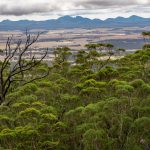 May 18, 2020 11:02 am
Published by Climate Extremes
May 18, 2020 11:02 am
Published by Climate Extremes
Australian researchers assess the ability of recently released climate models to simulate the climate of Australia and the new scenarios for 21st Century climate change.
 May 5, 2020 9:17 am
Published by Climate Extremes
May 5, 2020 9:17 am
Published by Climate Extremes
All data sources agree that positive IOD events are becoming stronger and occur more often and that the mean-state of the Indian Ocean is moving towards a more positive IOD-like state due to enhanced warming in the west compared to the east.
 April 15, 2020 11:21 am
Published by Climate Extremes
April 15, 2020 11:21 am
Published by Climate Extremes
Models used to project future climate change, and impacts of climate change on plants and ecosystems, currently assume that mature forests will continue to absorb carbon over and above their current levels, acting as carbon sinks. The findings from this research suggest that those sinks may in actual fact be weaker or absent for forests on low-nutrient soils.
 April 15, 2020 10:26 am
Published by Climate Extremes
April 15, 2020 10:26 am
Published by Climate Extremes
This study presents a method for combining multiple observational datasets of the energy and water budgets at the land surface from different sources into a single hybrid dataset that conserves energy and mass.
 March 13, 2020 10:59 am
Published by Climate Extremes
March 13, 2020 10:59 am
Published by Climate Extremes
In this study, CLEX researchers and colleagues analysed the magnitude and sensitivity of vegetation responses to the Millennium Drought with satellite-derived information.
 March 10, 2020 11:08 am
Published by Climate Extremes
March 10, 2020 11:08 am
Published by Climate Extremes
In this study, CLEX researchers and colleagues tested the ability of 10 terrestrial biosphere models to reproduce observed sensitivity of ecosystem productivity to rainfall changes (rainfall exclusion/irrigation) at ten sites across the globe.
 March 9, 2020 2:35 pm
Published by Climate Extremes
March 9, 2020 2:35 pm
Published by Climate Extremes
New research shows, contrary to expectation, the inter-annual variance in evapotranspiration is much smaller than for precipitation, runoff and soil storage. Accounting for hydrologic covariances explains why it is possible for variability in the principal sink (e.g., streamflow) to exceed variability in the source (precipitation).
 February 25, 2020 7:34 am
Published by Climate Extremes
February 25, 2020 7:34 am
Published by Climate Extremes
In this study of drought and rainfall over the Murray Darling Basin, CLEX authors find that the length of time between La Niñas and negative-IODs is an important indicator of the likelihood of drought for this region.
 February 12, 2020 11:20 am
Published by Climate Extremes
February 12, 2020 11:20 am
Published by Climate Extremes
This work describes a new cross-scale modelling framework for urban environments and applies it to calculate how electricity and gas demand will change under future climate change and air conditioner (AC) ownership scenarios.
 February 11, 2020 1:45 pm
Published by Climate Extremes
February 11, 2020 1:45 pm
Published by Climate Extremes
CLEX researchers evaluated an updated version of CABLE climate model within a WRF physics ensemble over the CORDEX AustralAsia domain. Results were strongly dependent on the region of interest.










